Post
A catch
Save a catch to start your fishing logbook. You will be able to to share it with the community if yo want!
A fishing trip
Post an ad to go fishing with other fishermen
Save a catch to start your fishing logbook. You will be able to to share it with the community if yo want!
Post an ad to go fishing with other fishermen
Share a thought, a question with the community
My favorite cities
×Join our 1278 fishermen and our 9 cofishermen in Lower-Green in Kent. The fishing forecast is currently 3.5. The most caught fishes here are the pike fish, the sunbleak fish , the river lamprey and barbel fish. Come try the most famous fishing techniques like the roubaix fishing, spoon fishing for trout , fishing with method feeder and pellet feeder or the stalking fishing technique.
Our fishing forecast of Lower Green indicates the best time to go fishing in this city.
The Pike Fish
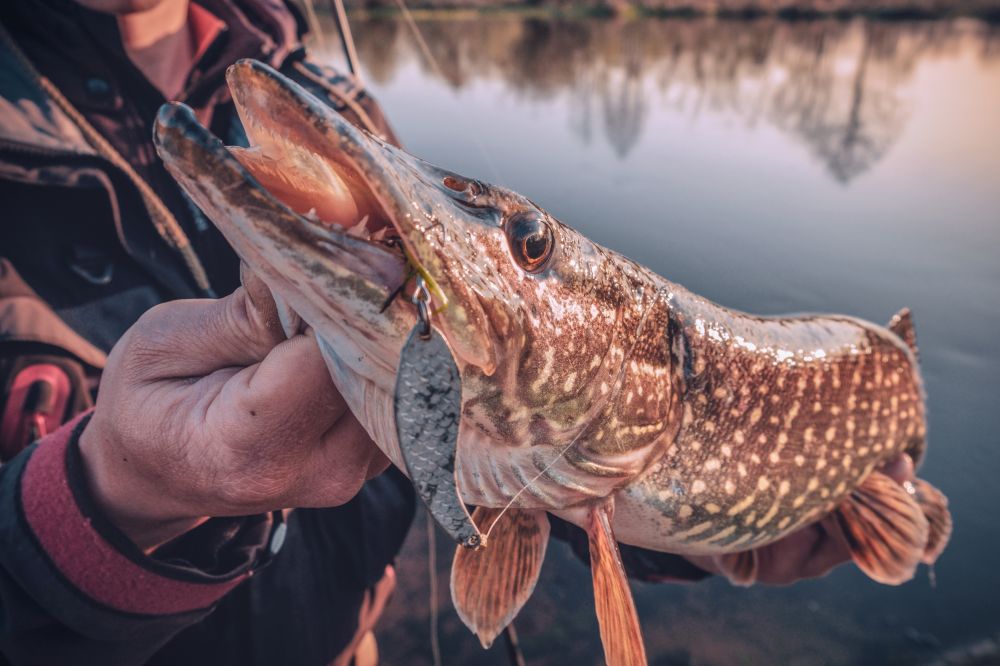
The Pike fish belongs to the Esocidae family. Pike can reach 1.30 m and weigh 25 kg. The current capture size is 50 cm for a weight of 1 kg. Females are commonly larger than males. The longevity is 10 to 14 years for males and 20 years (maximum 30 years) for females. Breeding takes place from February to May. The female lays 15,000 to 45,000 eggs per kg of weight. It is caught from June to December. This species is identifiable by its shape as a rifle bullet. The odd fins are at the back of the animal (allowing a sprinter propulsion). The characteristic head looks like a duck's beak. The mandible is longer than the upper jaw. The color varies from light green to black depending on the dominant color of the colonized habitats. The sides are lighter with darker transverse bands. During growth, the oblique stripes of young people give way to horizontal lines.
The Pike Fish is a famous fish you can catch in Lower Green.The Sunbleak fish
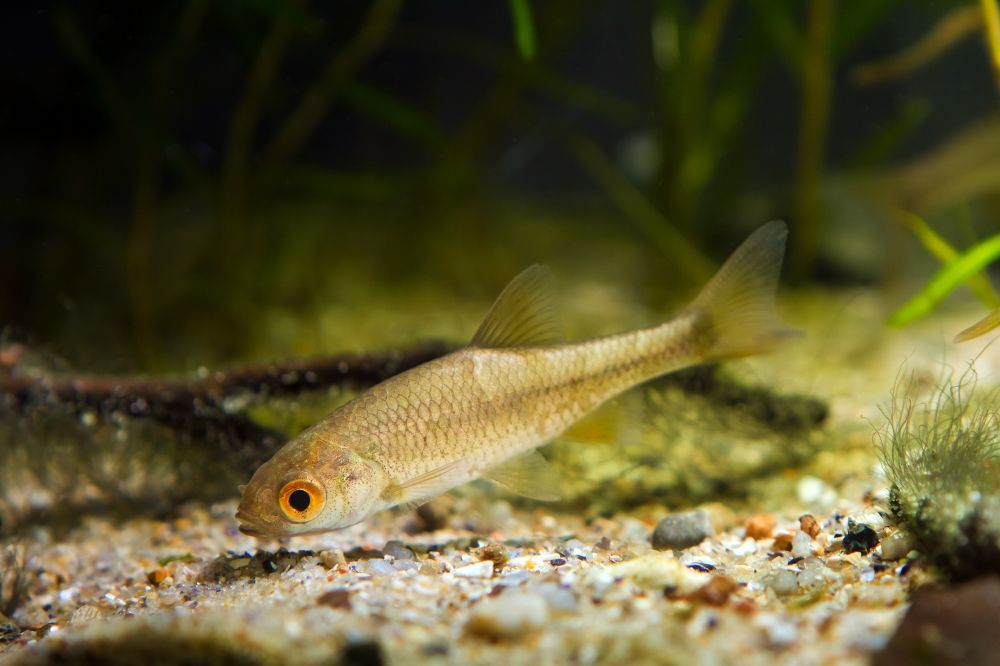
The Sunbleak fish belongs to the Cyprinidae family. The usual size of sunbleak is 4 to 6 cm for a weight of about ten grams. The largest individuals can reach 9 cm. Its lifespan is about 2 years. It breeds between May and July. It is prohibited to fish for the sunbleak in white water from October to March, but in mixed and calm waters it can be fished all year round. The Sunbleak has a tapered, laterally compressed body, like the common bleak with which it is often confused. However, its body is more robust and less high than that of the latter. Its head is small with eyes that are excessively large in relation to the size of the head. Its lower jaw is longer than its upper jaw, giving its mouth a forward and upward orientation, indicating a fish that feeds preferentially on the surface. The caudal fin of sunbleak is particularly indented, its dorsal fin fits well behind the pelvic fin insertions. The sunbleak has an olive-brown back, bluishly reflective sides and a silvery belly. Its fins are light grey.
The Sunbleak fish is a famous fish you can catch in Lower Green.The River Lamprey
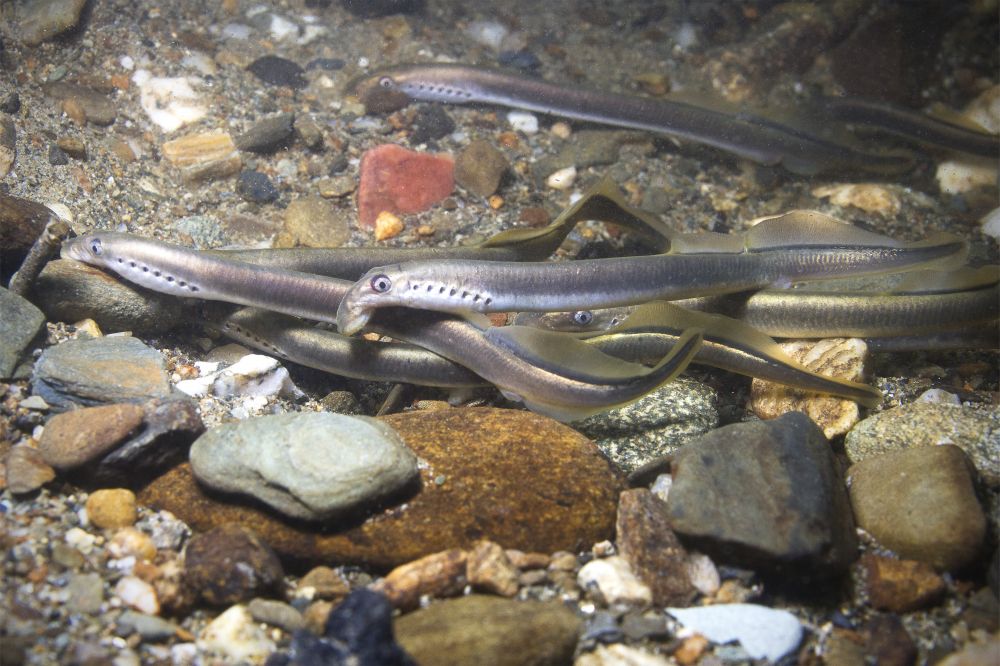
The River Lamprey belongs to the Petromyzontidae family. It measures 18 to 50 cm (average 25 to 35 cm) and weighs 30 to 150 g (average 50 to 70 g). Females are larger than males. The maximum age of the river lamprey is estimated at 10 years. Reproduction takes place between January and May. The number of eggs varies between 4,000 and 40,000. It is caught from January to May. A vertebrate with a cartilaginous skeleton and no jaws, the river lamprey has an anguilliform body, without scales and covered with toxic mucus. Its back is bluish to brownish green. Its sides are greyish, tanned, without mottling. The belly is white. The eyes are very well developed but remain primitive. A single nostril is located between the two eyes. In adults, the circular mouth in the lower position is a suction cup adapted to suction. The buccal disc and tongue are covered with only a few horny denticles, but most of them are strong and acute. On each side of the head, this species has seven pairs of circular gill holes (spiracules). The river lamprey has three fins: one caudal and two dorsal. The two dorsal fins are separated by a small interval, the second being triangular in shape, longer and higher than the first. The larvae are light-colored and its mouth is horseshoe-shaped. His eyes remain hidden under the skin. So it’s blind.
The River Lamprey is a famous fish you can catch in Lower Green.Barbel Fish
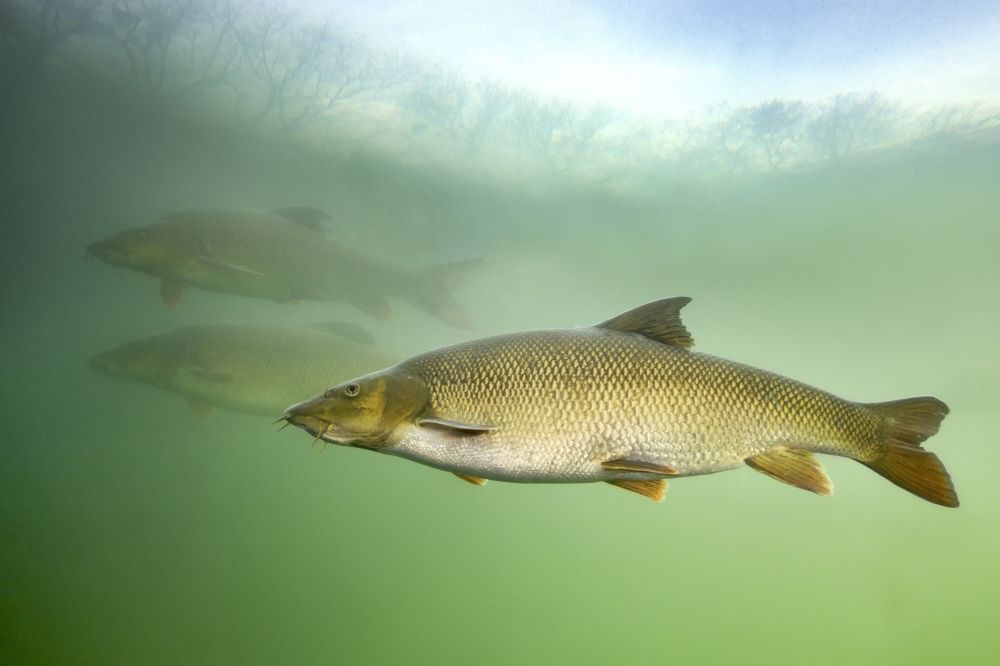
The Barbel fish belongs to the Cyprinids Family. Its maximum weight is 9 kg, and its maximum size is 90 cm but sometimes, it can reach 1 m. It can live 15 years. The Spawning period starts in May and end in July. It can lay up to 9,000 eggs. You can fish Barbel all year. The minimal weight catch is 3 kg. The barbel fish is hard to catch especially in an area where it feels at ease. The Barbel fish, with its streamlined body, shows its perfect adaptation to rivers animated by a more or less rapid stream. Depending on its layout, its color, which may be different, is uniform and slightly lighter on the belly. Barbels are sometimes "grey", sometimes "greenish", and sometimes "golden". Its snout is characteristic and clearly protrudes from its mouth. Note that the dorsal fin has a highly ossified thorny radius.
Barbel Fish is a famous fish you can catch in Lower Green.The Grayling
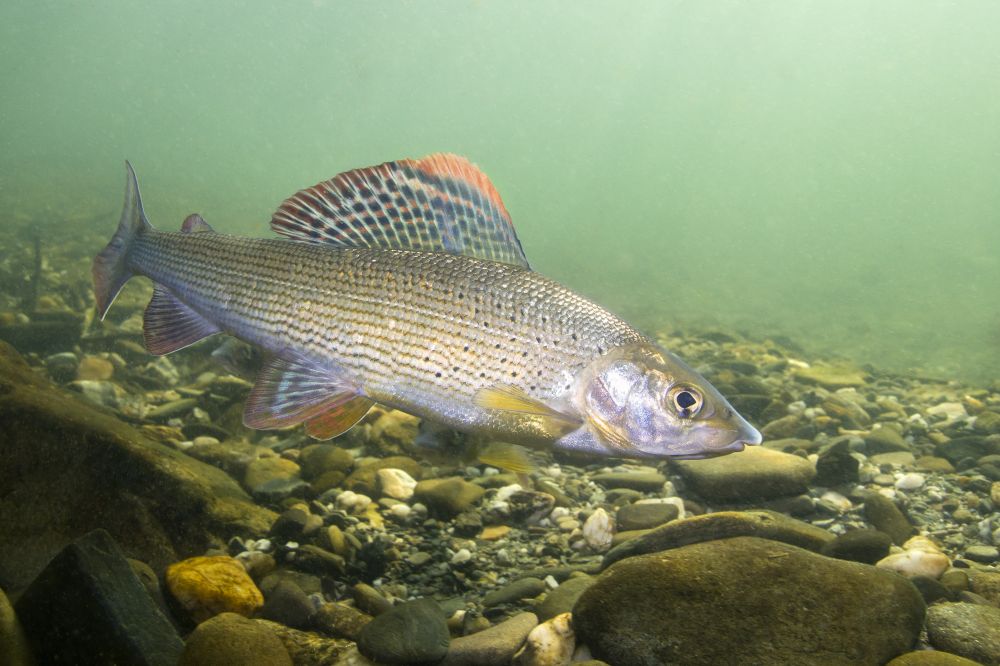
The Grayling belongs to the Salmonidae Family. The average size is 35 cm for 400 g (maximum 50 cm for 1.5 kg). Life expectancy can reach 5 years, rarely more. Breeding takes place in spring. The number of eggs laid depends on the size of the female and ranges from 600 to 8000 eggs. The fishery is open from June to December. The body, compressed laterally, is covered with large scales, some of which, pigmented, draw longitudinal streaks, highlighted with black spots. The head is small, the mouth opens downwards. The muzzle is thin, the eyes have forward pointing pupils and golden rings. The distinctive signal of the species is the long, high dorsal fin, supported by about 20 soft rays. The whole forms, over nearly a quarter of the length of the fish, an iridescent flag of violet to purple coloring, also called a vexille. The caudal peduncle is thin, surmounted by the adipose fin characteristic of Salmonids.
The Grayling is a famous fish you can catch in Lower Green.Our fishing forecast of Lower Green indicates the best time to go fishing in this city.
Our fishing forecast of Lower Green indicates the best time to go fishing in this city.
Our fishing forecast of Lower Green indicates the best time to go fishing in this city.
